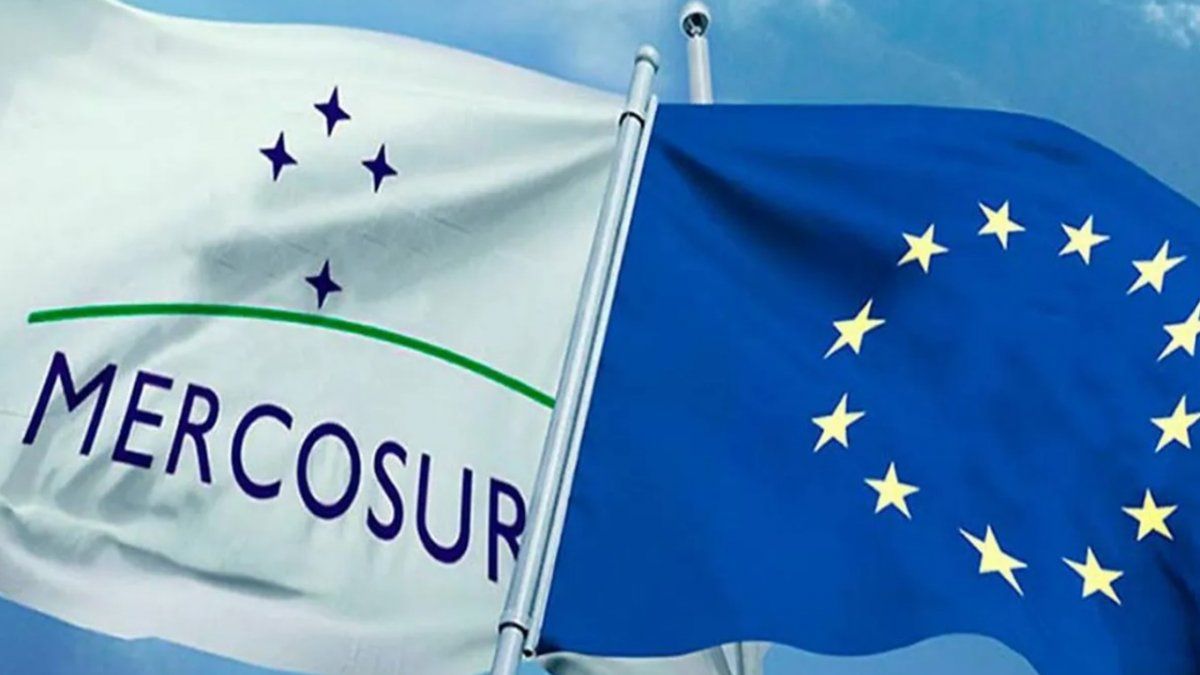Argentina committed to achieving climate neutrality by 2050. This is confirmed by the first official publication of the European Union on the environmental chapter included in the agreement with Mercosur. The news comes days after Javier Milei’s government threatened to withdraw from the Paris Agreement. According to the text, adherence to these rules is an “essential element”, which means that one of the parties could even break the treaty if the other bloc does not comply with these clauses.
An official document published by the Department of International Trade of the European Union ensures that Argentina and the rest of the countries that make up Mercosur and the EU committed to achieving climate neutrality by 2050. Along these lines, the article highlights that “the association agreement embodies a shared commitment to sustainable development and will serve to promote the green transition and guarantee the protection of labor rights.”
The publication comes a month after Milei’s government unexpectedly withdrew the Argentine delegation from the annual UN climate conference. Foreign Minister Gerardo Werthein even threatened to withdraw from the Paris agreement: “We are reevaluating our strategy on all issues related to climate change,” he told The New York Times.
However, The document released details that the Paris Agreement is an “essential” element in the EU-Mercosur treaty. This means that one of the parties may break the contract if the other does not comply with the environmental postulates. It also includes a principle of “non-regression” by which environmental conditions or labor standards cannot be worsened to promote trade and investment.
“Milei signed something that goes against climate change denialism. It is an agreement that is aligned with the Paris Agreement and the European Green Deal,” Conicet researcher and professor of the master’s degree in International Studies at the Torcuato Di Tella University, Bernabé Malacalza, explained to Ámbito. In that sense, he pointed out that “It is not pragmatism, it is the gap between the President’s desire and his real negotiating weight.”
Political consultant and international affairs specialist Patricio Giusto agreed that “Milei has been left in a rather lonely position with respect to the climate issue” and added that “It is risky for Argentina because companies from countries that do not adhere to these regulations are harmed, markets are closed and investments are lost.”
Implementation and message to Trump’s protectionism
The end of the negotiations constitutes a relevant step in the process. After a final legal clean-up by both parties, the text will be translated into all official EU languages and then presented to the Council and the European Parliament. If Ursula Von der Leyen obtains endorsement from these organizations, she will enter the “provisional application” stage.
As Ámbito anticipated, This implies that the central issues of the European Union-Mercosur agreement and all the sections linked to foreign trade can be applied without the need for the countries that make up the EU to approve them in their respective parliaments.
For Bernabé Malacalza “The agreement is a geopolitical message to the policy of mega tariffs that is coming with Trump”. According to the specialist, it is “a clear movement by the European Union against protectionism that also occurs at the same time that China launches a zero tariff policy for developing countries.”
Support from local businesses
Although various analysts consider that the agreement brings risks for some sectors of national production, business organizations expressed their support almost unanimously. The Group of 6, which includes the main entities in the financial, commerce, agriculture, construction and industry sectors, celebrated it and highlighted that it will have a “positive impact on the economic development of the country.”
The Argentine Agroindustrial Council did the same with a statement in which its president José Martins considered the agreement “a sign of a more active Mercosur and willing to open markets” and assured that “the adoption of investment and marketing rules between both blocs will allow attracting European investors in the Argentine agribusiness.”
In the case of CILFA, the chamber that brings together the national laboratories, focused on the fact that the agreement “provides for a balanced intellectual property chapter which, while stimulating innovation and investment, establishes the conditions to maintain a competitive and dynamic pharmaceutical market.”
An important economic consultant told Ámbito that among the potentially affected sectors are the automotive industry, some items linked to the metallurgical value chain and local links in the textile value chain. So far there have been no official questions.
Source: Ambito
David William is a talented author who has made a name for himself in the world of writing. He is a professional author who writes on a wide range of topics, from general interest to opinion news. David is currently working as a writer at 24 hours worlds where he brings his unique perspective and in-depth research to his articles, making them both informative and engaging.




